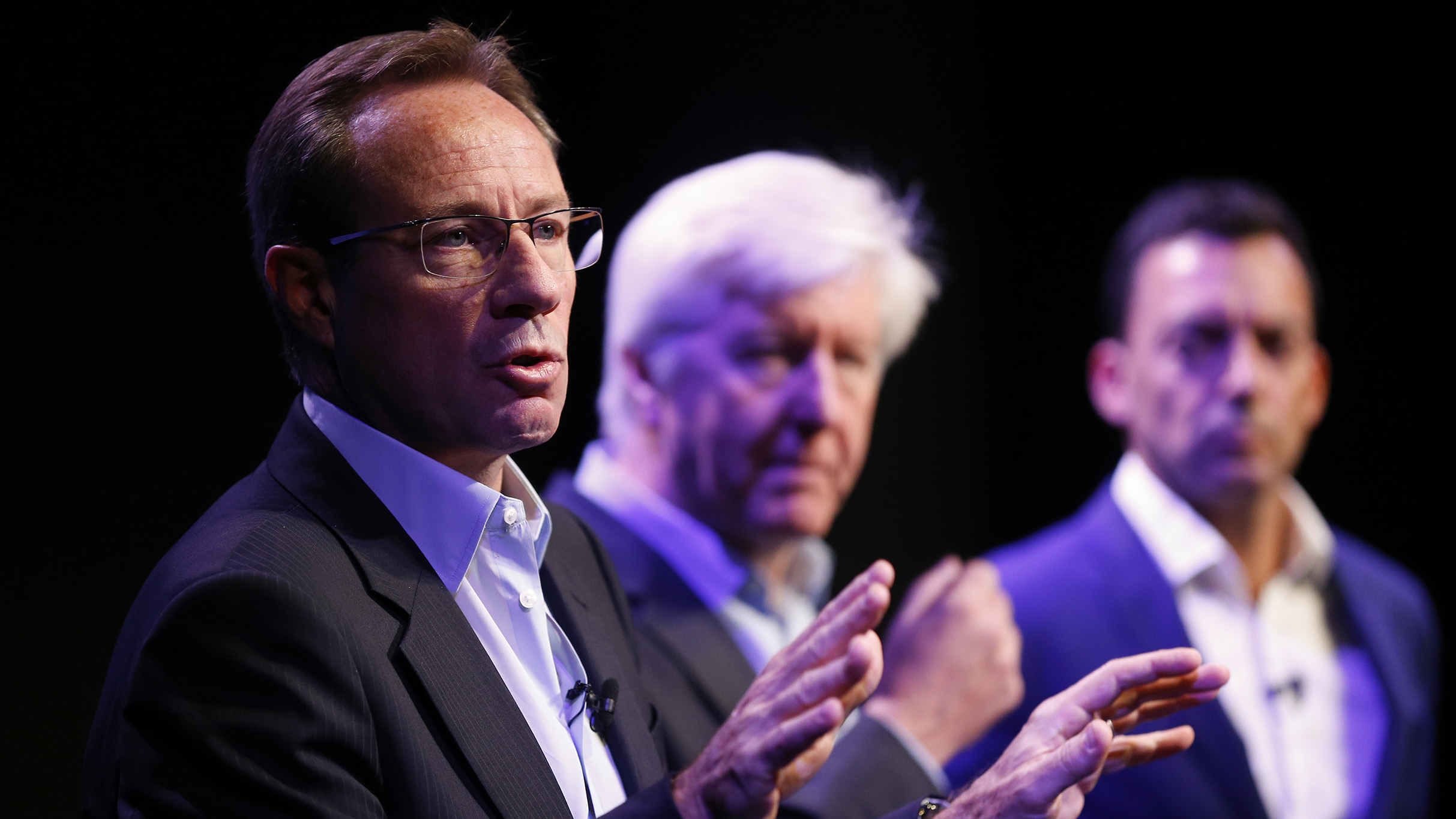‘The pace of change is taking its toll’: Business leaders are becoming burned out by rapid technological changes
Tech leaders are contending with mounting stress levels amidst a sharpened focus on adopting new technologies and ramping up transformation efforts


The pace of technological change is giving business leaders sleepless nights, new research shows, with cyber security threats and AI the biggest culprits.
According to research from BT, 58% are worried about keeping up with current technology trends while nine-in-ten revealed the pressure of adapting is becoming a major factor in work-related stress.
Around two-thirds told BT that digital transformation is vital to the survival of their business, but they’re experiencing ‘tech paralysis’ and are unable to meet expectations.
While failure to adapt to technology trends is having a negative impact on business leader wellbeing, the issue also has wide-reaching economic implications, according to BT. Long-term, the inability to keep pace could cost the UK economy more than £11 billion.
"Today, every business is a digital business – and our research shows that the pace of change is taking its toll," said Bas Burger, CEO, business at BT.
Nearly 90% of businesses are investing in new technology this year to improve productivity and gain competitive advantage, with tech investment overall set to increase 31% year-on-year.
However, 59% of decision-makers say tech is advancing so quickly that they worry about the future of their business. This is an even bigger concern in financial services businesses and HR, the study found, with 74% and 78% respectively saying they're concerned about the impact on their sector this year.
Get the ITPro daily newsletter
Sign up today and you will receive a free copy of our Future Focus 2025 report - the leading guidance on AI, cybersecurity and other IT challenges as per 700+ senior executives
BT’s research indicates that 104,000 British businesses could be opting not to invest in new technology this year due to stress associated with the implementation, transformation, and upskilling involved.
While cyber security is seen as the biggest technological threat to businesses this year, AI is also a huge source of stress. Three-in-four business leaders said it has made them feel stressed or anxious in the past year.
One-third are worried about data privacy and security (34%), with three-in-ten concerned about quality and reliability. One-in-five even see it as an existential threat to their business.
In a bid to combat technology-related stress, the firm recommended business leaders explore measures aimed at improving wellbeing and reducing anxiety, such as meditation.
BT has teamed up with ex-Dragons' Den dragon Sarah Willingham and meditation guru Izzy Judd, to create a series of tech-inspired guided meditations.
The Business Reboot podcast is designed to help businesses of all sizes, and their employees, to prepare themselves for the tech challenges of the day. Episodes focus on AI, cyber security, data analytics, digital skills, and cloud computing.
RELATED WHITEPAPER

"Meditation plays an important role in millions of lives across the UK, and is increasingly being used in business to help tackle the stress of life in the fast lane," Judd said.
"Just taking a few minutes to step away from the to-do list, connect your body and mind, and reset your priorities, can provide a huge boost to clarity and concentration, while enabling you to feel calmer."
BT isn't the first company to explore the use of meditation apps to help stressed tech staff. In 2020, Snapchat teamed up with Headspace to bring guided meditations, mindfulness practices, and mental health help to its members.
And the problem of stress in the tech industry appears to be worsening, with a recent Gartner report finding that early half of cyber security leaders are expected to change jobs by 2025 due to work-related stress.
Emma Woollacott is a freelance journalist writing for publications including the BBC, Private Eye, Forbes, Raconteur and specialist technology titles.
-
 Cleo attack victim list grows as Hertz confirms customer data stolen
Cleo attack victim list grows as Hertz confirms customer data stolenNews Hertz has confirmed it suffered a data breach as a result of the Cleo zero-day vulnerability in late 2024, with the car rental giant warning that customer data was stolen.
By Ross Kelly
-
 Lateral moves in tech: Why leaders should support employee mobility
Lateral moves in tech: Why leaders should support employee mobilityIn-depth Encouraging staff to switch roles can have long-term benefits for skills in the tech sector
By Keri Allan
-
 Optimise CX and accelerate business growth through your voice network
Optimise CX and accelerate business growth through your voice networkwhitepaper Protecting the human experience in a digital world
By ITPro
-
 IDC InfoBrief: Sustainability doesn’t need to be all stick and no carrot
IDC InfoBrief: Sustainability doesn’t need to be all stick and no carrotwhitepaper CIOs are facing two conflicting strategic imperatives
By ITPro
-
 Unlocking the power of your digital services
Unlocking the power of your digital servicesSponsored Businesses have invested significant cash into technology since COVID-19, but are they really getting their money's worth?
By ITPro
-
 The forgotten workforce needs a new communications strategy
The forgotten workforce needs a new communications strategySponsored Reliable communications technologies are key to building an efficient remote workforce
By ITPro
-
 The future of work and the forgotten workforce
The future of work and the forgotten workforcewhitepaper How to deploy a mobile-first strategy so no one gets left behind
By ITPro
-
 Building an outstanding digital experience
Building an outstanding digital experiencewhitepaper Insight into how banks and financial services organizations can deliver the digital experiences customers and employees expect
By ITPro
-
 Inbound BT CEO Allison Kirkby faces challenge of leading telco through cuts in 2024
Inbound BT CEO Allison Kirkby faces challenge of leading telco through cuts in 2024News Kirkby brings years of experience heading some of the biggest telcos in the EU
By Rory Bathgate
-
 Philip Jansen to leave BT within year, firm staying the course on cost-cuts
Philip Jansen to leave BT within year, firm staying the course on cost-cutsThe CEO has overseen BT through a rocky four years
By Rory Bathgate